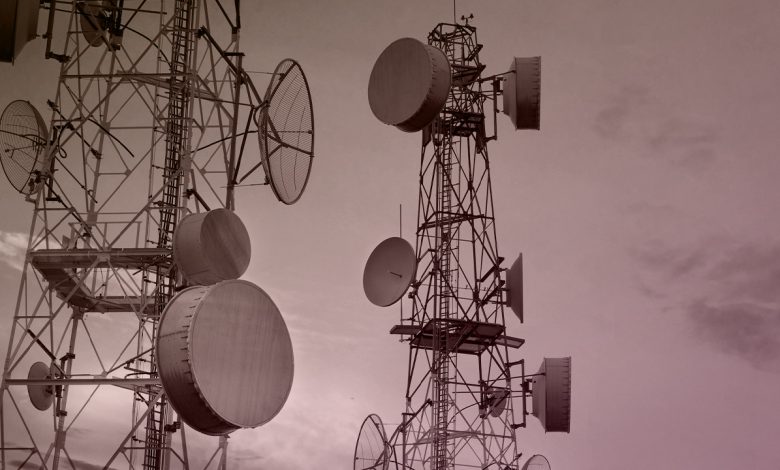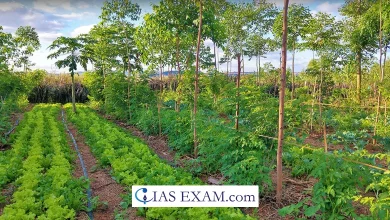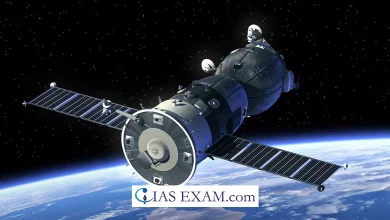Reforms in Telecom Sector

Topic- Growth and Development [GS Paper-3]
Context- The Union government has approved various structural and procedural reforms in the telecom sector.
Key Highlights
- The reforms include
- Rationalisation of Adjusted Gross Revenue (AGR);
- Rationalisation of Bank Guarantees (BGs);
- Rationalisation of interest rates and removal of penalties;
- Dispensing with the requirement of BGs for auctions held henceforth in order to secure instalment payments;
- Increasing spectrum tenure from 20 years to 30 years in future auctions;
- Permission for surrender of spectrum after 10 years
- Dispensing with the requirement of Spectrum Usage Charge (SUC) for spectrum acquired
- Removal of additional SUC of 0.5% for spectrum sharing
- Permission for 100% Foreign Direct Investment (FDI) in telecom sector under automatic route subject to safeguards;
- A fixed time for spectrum auctions (normally in the last quarter of every financial year);
- Requirement of licenses under 1953 Customs Notification for wireless equipment replaced with self-declaration;
- Permission for Self-KYC
- e-KYC rate revised to only one Rupee; Dispensing with the requirement of fresh KYC for shifting from Prepaid to Postpaid and vice-versa;
- Replacement of paper Customer Acquisition Forms with digital storage of data;
- Easing SACFA clearance for telecom towers
- Addressing liquidity requirements of the Telecom Service Providers by way of moratorium/deferment.
- 4G:
- 4G mobile coverage has been provided to over 98% of the population of India.
- The 4G roll- out has boosted economic activities across the country, which has resulted in growth and creation of job opportunities.
- 5G:
- As far as 5G is concerned, permissions have been accorded to Indian TSPs for conducting trials for the applications of 5G technology.
Structural Reforms
- Rationalisation of Adjusted Gross Revenue:
-
-
- Non-telecom revenue will be excluded on prospective basis from the definition of the AGR.
-
- Bank Guarantees (BGs) rationalised:
-
-
- A huge reduction in BG requirements (80%) against License Fee (LF) and other similar Levies.
- There are no requirements for multiple BGs in different Licenced Service Areas (LSAs) regions in the country. Instead, One BG will be enough.
-
- Interest rates Penalties removed:
-
-
- From 1st October, 2021, Delayed payments of License Fee (LF) or Spectrum Usage Charge (SUC) will attract interest rate of SBI’s MCLR plus 2% instead of MCLR plus 4%; interest compounded annually instead of monthly; penalty and interest on penalty removed.
- For Auctions held henceforth, no BGs will be needed to secure installment payments.
- Industry has matured and the past practice of BG is no longer needed.
-
- Spectrum Tenure:
-
-
- In future Auctions, tenure of the spectrum grew from 20 to 30 years.
- Surrender of spectrum will be permitted after 10 years for spectrum acquired in the future tenure.
- No Spectrum Usage Charge (SUC) for spectrum acquired in future
-
- Spectrum sharing encouraged:
-
-
- Additional SUC of 0.5% for spectrum sharing has been removed.
-
- FDI Reforms:
-
- In order to encourage investment, 100% Foreign Direct Investment (FDI) under automatic route permitted in Telecom Sector. All safeguards will apply.
Procedural Reforms
- Auction calendar fixed:
- Spectrum auctions to be held in the last quarter of every financial year.
- Ease of doing business promoted:
- The cumbersome requirement of licenses under 1953 Customs Notification for wireless equipment was removed and was replaced with self-declaration.
- Know Your Customers (KYC) reforms:
- Self-KYC (App based) to be permitted. E-KYC rate revised to only One Rupee. Shifting from Prepaid to Post-paid and vice-versa will not require a fresh KYC.
Significance of Reforms
- Investment & Employment:
It will pave the way for large-scale investments in the telecom sector. Investment means employment – more the investment, more the employment.
- Healthy Competition:
This is a welcome step towards strengthening the industry and ensuring survival of players to maintain healthy competition for the benefit of the customers.
- Cash Flow & Relief:
The taken measures are expected to ease the cash flow issues being faced by some players in the industry and provide relief to companies such as Vodafone Idea that have to pay thousands of crores of rupees in unprovisioned past statutory dues.
- Reducing NPAs:
The telecom package comes as a relief to the banks as it mitigates the possibility of default by the vulnerable operators. It would also help in stabilising and reducing the non-performing assets in the sector.
- Increased Repayments: The measures announced by the government will help the companies conserve cash and it will significantly improve the probability of repayment at least for the next 3-4 years.
Way Ahead
- The removal of non-telecom revenues from the definition of AGR and the removal of penalty is a needed change that has been brought in.
- It is also required for the government’s intervention in setting sustainable telecom floor tariffs, as it has done in the civil aviation sector to protect competition.
- More efforts should address the significant losses in the balance sheets of a majority of the stakeholders.
- With a view to lead innovations in the next phase of technology development, the Department of Telecommunications has constituted a Technology Study Group on 6G.
- The government needs to work on the recommendations it will receive from the Telecom Regulatory Authority of India (TRAI) on auction of spectrum in frequency bands identified for International Mobile Telecommunications (IMT)/5G in India.





.png)



